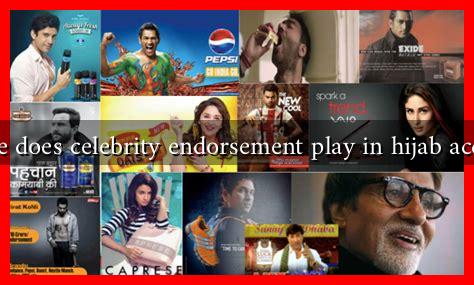-
Table of Contents
What Role Does Celebrity Endorsement Play in Hijab Acceptance?
The hijab, a traditional headscarf worn by many Muslim women, has often been a subject of debate and controversy. However, in recent years, the acceptance of the hijab has been significantly influenced by celebrity endorsements. This article explores the role of celebrities in promoting hijab acceptance, examining how their influence can reshape perceptions and foster a more inclusive society.
The Power of Celebrity Influence
In today’s digital age, celebrities wield immense power over public opinion and cultural trends. Their endorsements can make or break fashion statements, social movements, and even political campaigns. The influence of celebrities is particularly pronounced in the realm of fashion and lifestyle, where their choices can lead to widespread acceptance or rejection of certain styles, including the hijab.
Changing Perceptions Through Visibility
One of the most significant impacts of celebrity endorsement is the increased visibility of the hijab in mainstream media. When celebrities wear the hijab, it challenges stereotypes and promotes a more nuanced understanding of Muslim identity. Here are some notable examples:
- Halima Aden: The Somali-American model made headlines as the first hijab-wearing model to compete in the Miss Minnesota USA pageant. Her participation not only showcased her beauty but also highlighted the diversity within the modeling industry.
- Rihanna: The global pop icon has been seen wearing a hijab in various fashion campaigns, which has sparked conversations about cultural appreciation versus appropriation.
- Gigi Hadid: The supermodel has been photographed wearing a hijab during her travels, promoting a message of acceptance and solidarity with Muslim women.
These endorsements help normalize the hijab in popular culture, making it more acceptable for women to wear it without fear of judgment or discrimination.
Case Studies: Brands and Campaigns
Several brands have recognized the potential of celebrity endorsements in promoting hijab acceptance. Here are a few notable campaigns:
- Nike’s Pro Hijab: Launched in 2017, this product was endorsed by Muslim athletes like Ibtihaj Muhammad, the first American athlete to compete in the Olympics wearing a hijab. The campaign not only celebrated athleticism but also empowered Muslim women to participate in sports.
- H&M’s Modest Fashion Line: The fashion retailer collaborated with influencers and models who wear hijabs to promote their modest fashion line. This initiative aimed to cater to a diverse audience while promoting inclusivity.
These campaigns demonstrate how celebrity endorsements can effectively bridge cultural gaps and promote acceptance of the hijab in various contexts.
Statistics and Research Findings
Research indicates that celebrity endorsements can significantly influence consumer behavior and societal attitudes. A study published in the Journal of Business Research found that celebrity endorsements can enhance brand credibility and consumer trust. In the context of hijab acceptance, this translates to:
- Increased visibility of hijab-wearing individuals in media.
- Reduction in negative stereotypes associated with Muslim women.
- Encouragement for non-Muslim women to explore modest fashion choices.
Challenges and Criticisms
Despite the positive impact of celebrity endorsements, there are challenges and criticisms to consider. Some argue that celebrity endorsements can lead to commodification of cultural symbols, reducing the hijab to a mere fashion statement. Additionally, there is a risk of reinforcing stereotypes if endorsements are not accompanied by genuine understanding and respect for the cultural significance of the hijab.
Conclusion: A Path Towards Greater Acceptance
Celebrity endorsements play a crucial role in promoting hijab acceptance by increasing visibility, challenging stereotypes, and fostering inclusivity. While there are challenges to navigate, the positive influence of celebrities can help reshape societal perceptions and encourage a more accepting environment for hijab-wearing women. As the conversation around modest fashion continues to evolve, it is essential for celebrities and brands to approach this topic with sensitivity and respect, ensuring that the hijab is celebrated as a symbol of identity and empowerment rather than merely a trend.
In summary, the intersection of celebrity culture and hijab acceptance presents a unique opportunity to promote understanding and inclusivity in a diverse world. By leveraging their influence responsibly, celebrities can contribute to a more accepting society where all forms of expression, including the hijab, are embraced.

